Cedar Closet (Pros And Cons)
Here’s our cedar closet pros and cons guide, including what it does, how long it lasts, the best type to choose, and what not to put in these closets.

Cedar is a popular building material for closets due to its soft, red wood and recognizable aroma. Cedar trees grow worldwide, and the species most used in closets is the Virginia Juniper. The heartwood of the tree, which is the center, is the part used for harvesting and creating wood planks for closets.
Many fashion enthusiasts prefer to keep their designer clothing in cedar closets, citing its protective qualities. Read this helpful guide to decide if they are suitable for your home with the help of these cedar closet pros and cons.
What Does Cedar Do In A Closet?
Cedar wood, typically used in a walk-in closet, not only looks luxurious, but its aroma also offers a balsamic scent reminiscent of an heirloom hope chest or old-fashioned aftershave.
This enchanting scent is what does the work by warding off bugs and pests to prevent infestations and damage to clothing and shoes. It also adds a slight scent to clothing and can reduce humidity in the closet to keep wool jackets and shoes in pristine condition.
Cedar wood, which is normally used for walk in closet designs, can be utilized for long-term clothing storage. The resin-rich wood is used around clothing, shoes, and other closet accessories to provide protection and keep everything safe from aging. Wool business suits, sweaters, and luxury footwear are all good candidates for these closets.
Pros Of Cedar Closets
• Bug Deterrent: The aroma of cedar closets repels insects that would eat away quality clothing, such as moths. The scent confuses moths and disturbs their pheromone detectors and navigation system.
• Dehumidifying: The fine-grain wood’s moisture-wicking properties prevent mold and mildew development. The wood acts as a natural dehumidifier in humid climates, keeping clothing and shoes from growing mold.
• Color: Cedar has a pinkish-red color with purple overtones and yellow highlights. The colors are varied and quite beautiful, making an interesting material for closets.
• Aromatherapy Benefits: The smell is said to have aromatherapy effects leading to calm and relaxation.
Cons Of Cedar Closets
• Aroma Fades: The fragrant wood eventually loses its scent over time. When the aroma fades, the wood will need to be sanded and buffed to bring the scent back.
• Maintenance: Cedar has to be oiled every three to six years so it doesn’t dry out and turn a gray color. This involves moving everything out of the closet and waiting for the oil finish to dry.
• Allergies: Some people are allergic to the properties of the wood oil and don’t find out until they begin a closet install. Skin contact with the oil in cedar, thymoquinone, or from clothing or shoes stored in these closets may cause skin irritation and itching. Thymoquinone is a potent skin irritant and allergen.
• Cedar Asthma: The wood and its shavings contain plicatic acid, and when exposed to it for a long time, it may cause asthma, which is a strong allergic reaction that has to be treated.
• It’s Expensive: The aromatic lumber is expensive and, depending on the size of the closet, costs an average of $3,500 to $6,500 for the material. Their planks are more expensive than the panels made, similar to sheets of plywood.
How Long Does A Cedar Closet Last?
Cedar types of closets that are maintained can last decades. If the wood is not oiled and the closet exposed to constant room air, it risks drying out and turning an aged color of gray with no chance of restoring the original scent.
With proper oiling and by keeping the door closed when not retrieving items, the natural wood will provide beauty and protection for clothing and shoe storage for a decade or more.
However, without proper maintenance, you can expect the fragrant cedar closets to lose their effectiveness, depending on the climate, within 3 to 7 years. Sanding the exterior surfaces can help bring them back to life again.
Best Cedar For Closets
The best cedarwood for closets includes two particular species. Each of them has their own pros and cons.
• Juniperus Virginiana: Known as Eastern Red Cedar, Juniperus Virginiana grows in the eastern United States, primarily in the Appalachian Mountains. The trees grow from 20 to 40 feet, and some are as tall as 100 feet.
Eastern Red is known as an aromatic for its pungent aroma; its also called Pencil cedar, as it’s commonly used to make pencils.
• Spanish Cedar: This tree grows native to Central and South America, with trees being planted in Florida. Spanish Cedar is a relative of mahogany trees and is often used for high-end types of furniture styles, closets, cabinetry, and lightweight racing boats.
What Should You Not Put In A Cedar Closet?
Cedar emits gasses that can break down materials and cause brittleness and discoloration over time. Glassware is not affected, but a list of items can be damaged by storing them in these resin-rich planked closets.
• Photographs: When photographs come into contact with the wood, the acid in the wood will damage them. Even if you store the photos in a photo album, the plastic and adhesive also produce acidic gases, damaging the photos and emitting extra gas into the closet.
• Collectible Cards and Important Papers: Anything made of paper or cardboard, including artwork, can end up destroyed by the gases cedar emits.
• Styrofoam: Styrofoam that comes into contact with the wood oils will dissolve.
• Items Made of Metal: The moisture cedar absorbs will cause any metal that comes in contact with the wood to rust.
• Mothballs: Although mothballs have long been touted as the answer to keeping bugs away, the wood will absorb the strong, often offensive odor, and sanding won’t get rid of it.
• Jewelry: Jewelry with softer settings such as pearls, shells, opals, and quartz are subject to discoloration when they come into contact with the wood.
• Fur Garments and Coats: The wood’s ability to absorb moisture causes the humidity in the closet to be too low for fur clothing or coats.
Do Cedar Closets Make Clothes Smell?
Clothing stored in these wood closets takes on a cedar odor; however, it typically fades in a few hours after removal. If the odor lingers or you want to remove it, soak the clothing in one part of white vinegar and two parts of water for 45 minutes to an hour.
Ring out the water and wash the clothes as usual. Hanging the clothing in the fresh air on a sunny day helps remove any lingering scent.
Are Cedar Closets Worth It?
With all the popularity of organic and natural solutions, cedar closets are in high demand. Adding these closets to your home and keeping them fresh and maintained can add resale value to your home among environmentally conscious buyers. Potential buyers also enjoy the aroma and protection these closets provide.
Another environmental concern includes the cancer-causing effects of insect sprays. Many homeowners or home buyers also don’t want to use pesticides to protect expensive clothing such as wool sweaters or wool coats.
Cedar is a sustainable and highly renewable wood, with Eastern Red being what’s known as a pioneer species. The benefit of a pioneer species tree is its ability to repopulate on cleared, eroded, or damaged land where other trees would not thrive.
The increased value of a home and the protection for designer clothing, expensive wool coats and sweaters, and other sentimental or older clothing all make the cost of these wood closets a worthwhile investment. Even with all the cedar closet pros and cons, it is a lasting, wise investment for any home that never goes out of style.
See more related content in our article about the best closet island ideas on this page.

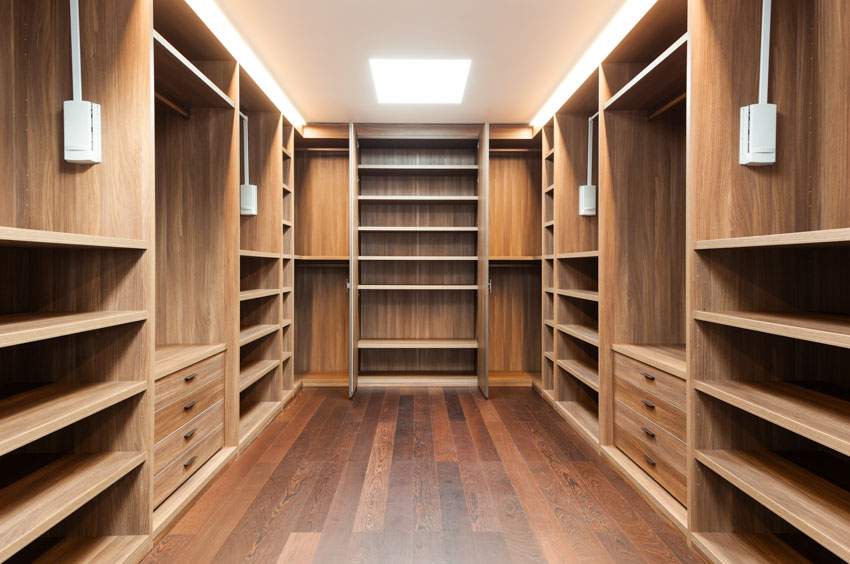
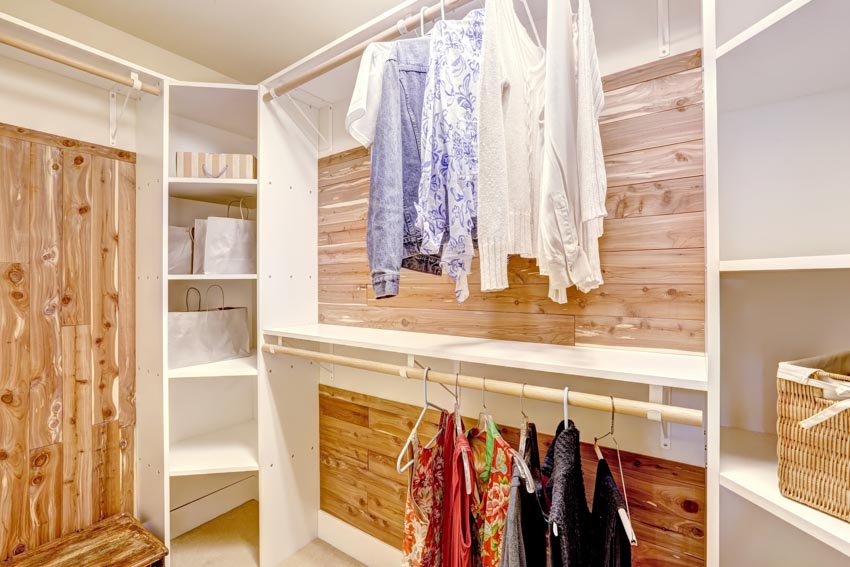
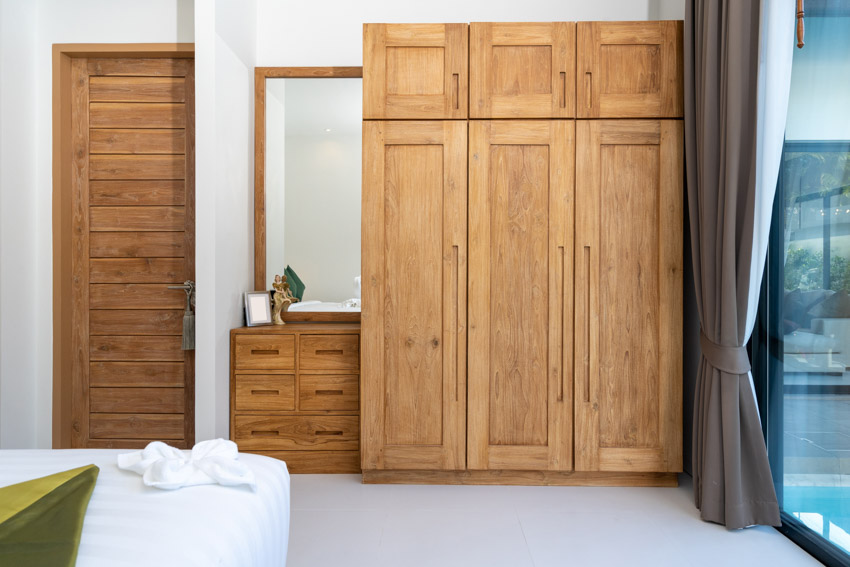
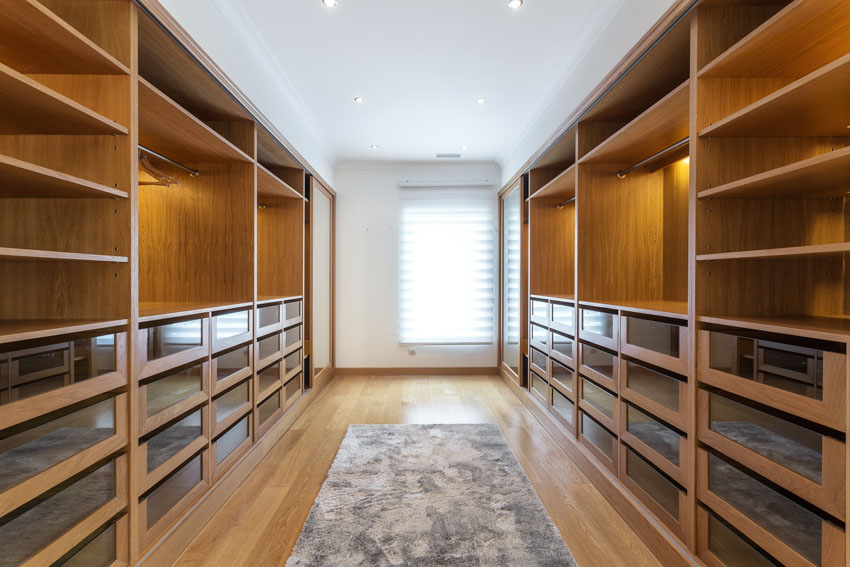
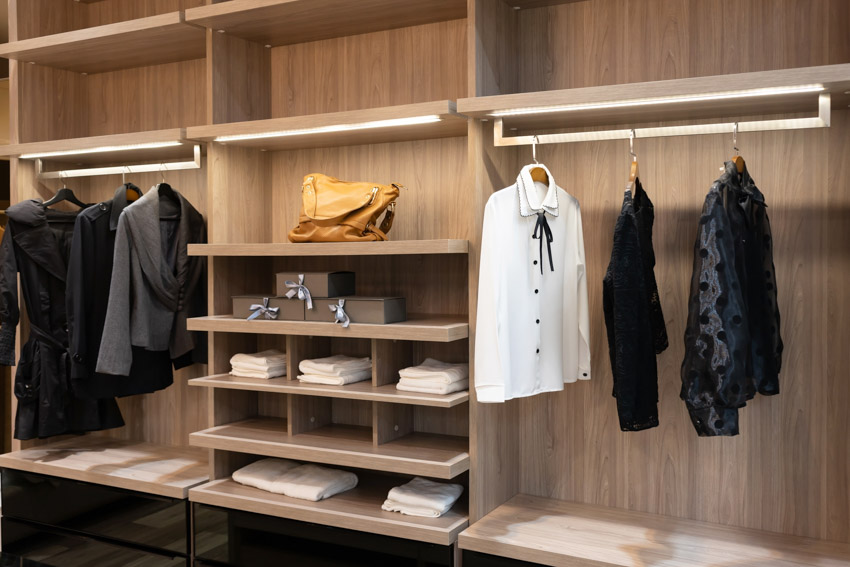


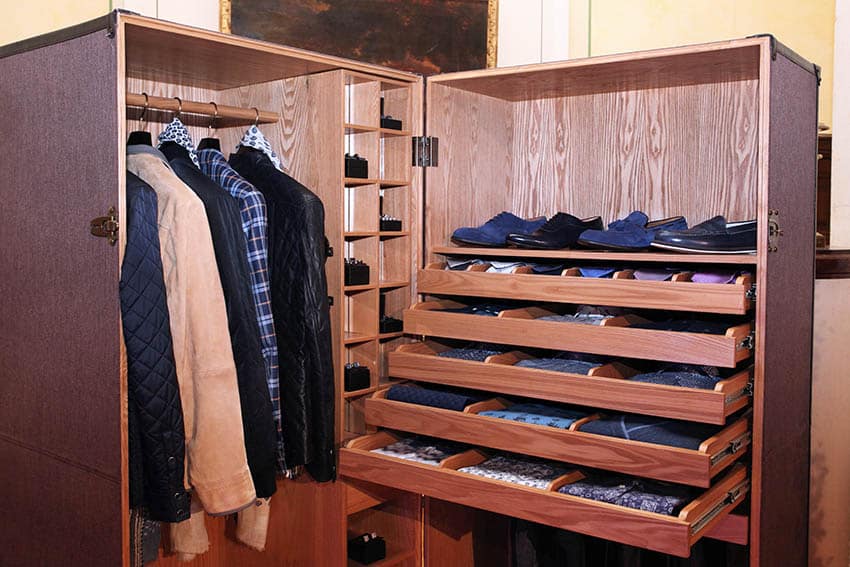

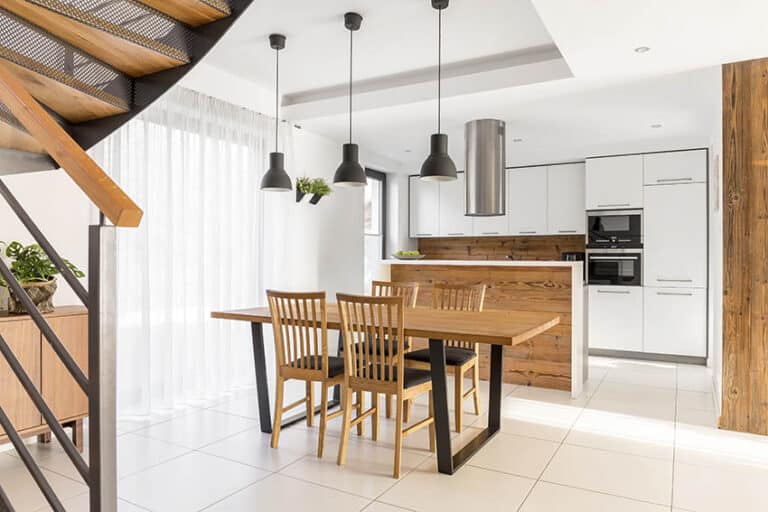
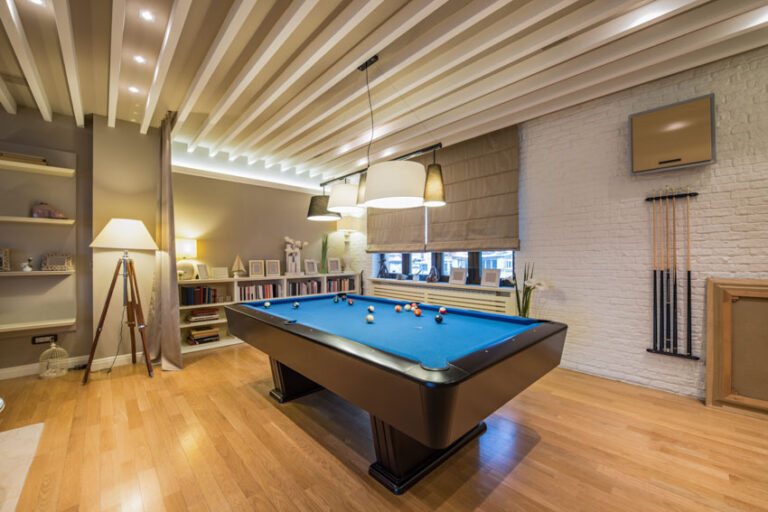



Cindy. The word research grabbed me and I would like your take on Cedar and possible health problems I have a friend who is a beautiful water color artist and can no longer paint due to headaches, and dizziness. She has lived in a completely lined Red Cedar small A-frame home for over 35 years. For over 10 years she has been affected with this strange illness. I have researched it and found the sensitivity angle… but allergies can take different forms other than sneezing, itchy eye and so forth. I think the cedar has made her sick. Small bedroom lined in cedar? I am desperate to help her. We used to paint together and so as a fellow artist what say you? Thanks…
Hello Nancy, thank you for the detailed comment. I’m so sorry to hear about your friend. From what I’ve read, cedar trees can cause allergy insensitivity mainly due to the pollen – https://www.webmd.com/allergies/what-is-cedar-fever However, it is possible that she is sensitive to the wood shavings, dust etc. I’d have her go to an medical/allergy specialist with her concerns.